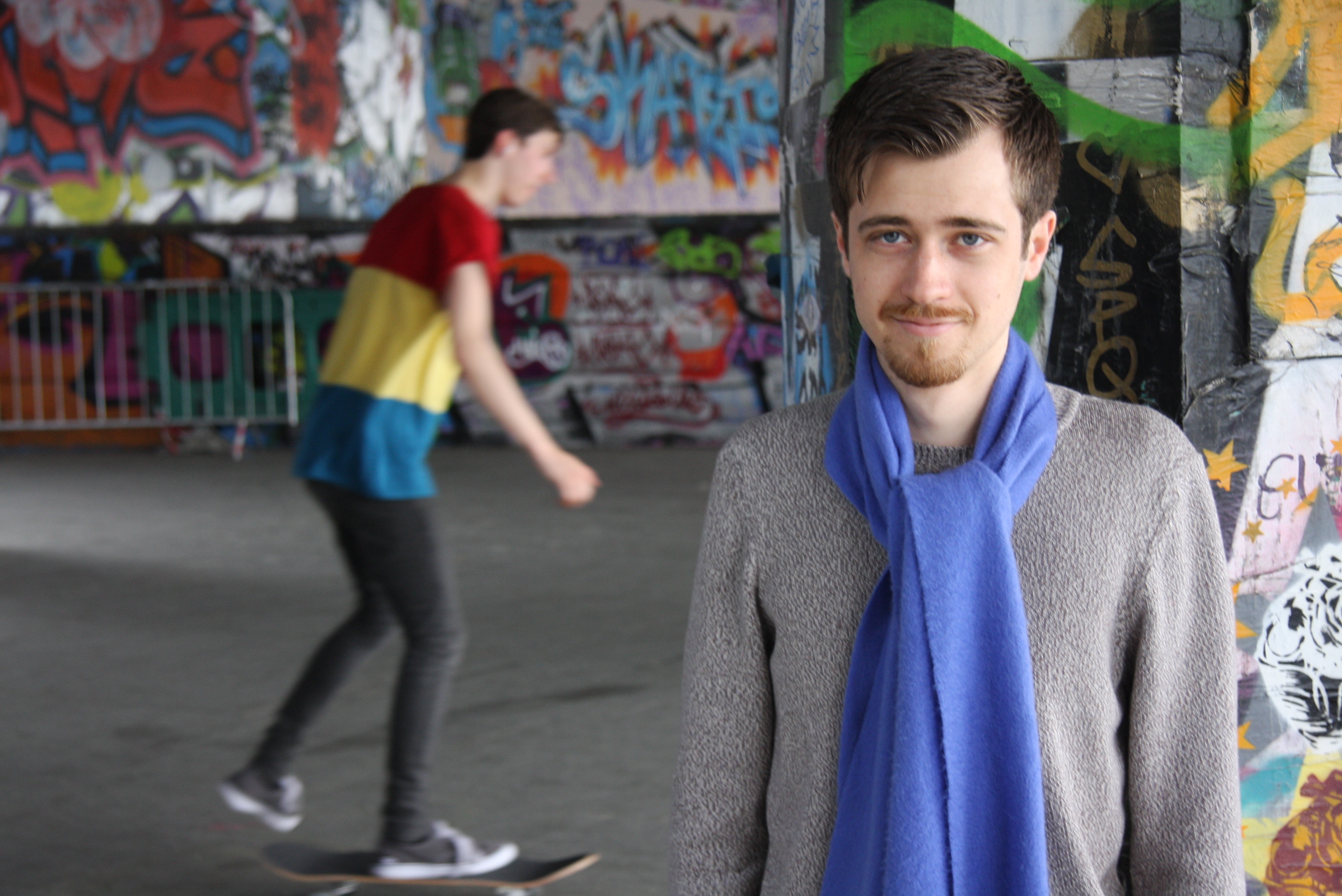Skateboarding and choral music don’t seem like natural bedfellows, but in a forthcoming performance piece at Aberdeen’s Transition Extreme Skatepark, the pair will come together in a fascinating artistic first.
Grind will be performed on Sunday1 June night as part of the Glasgow Commonwealth Games Cultural Programme and is the product of an innovative collaboration between composer Samuel Bordoli and pioneering opera company Tete-a-Tete. The very epitome of innovation, the 10-minute performance piece has risen out of the convergence between subject matters which are dear to each of its artists.
“Bill Bankes-Jones, the artistic director of Tete-a-Tete, is really keen on surfing and I’m keen on site-specific music,” said Samuel, 26.
“We thought maybe surfing would be a little impossible, but that it would be a great idea to combine our interests in some way.”
Skateboarding, while not only being handily land-based, also offers fertile ground for composing music, Samuel explained.
“I think it’s a very musical sport because of the things I noticed when I was watching live and on video. There’s a kind of grace and dance-like quality to it all which really works well with music. Also, it’s a rhythmic thing as well, because you’ve got very clear percussive sounds as they hit the different surfaces. In my head, it immediately sets beats and rhythms.
“And the challenge of this is how you do that with a choir, which is a more lyrical medium. But that contrast is interesting to me – the abrasive rub of choral music with the percussive sound.”
In Sunday evening’s performance, which has been co-produced by the Sound festival of new music and supported by Vibrant Aberdeen, choreographed sections of skateboarding – featuring a handful of local boarders – will be combined with the choral composition, created by Samuel, and performed by a community choir pulled together by Aberdeen University.
Finding a way to transpose the percussive nature of the sport to a choral landscape, the composer said, has been surprisingly achievable.
“Many of the moves are short, not long, extended phrases, so I tried to work that into the score. A lot of little sections have build-ups in them and repeated fragments to build into the skaters’ short moves,” said the Mendelssohn Scholarship-winning composer.
The Aberdeen performance is the inaugural performance of Grind, with site-specific performances in London’s Southbank Centre being held in early July, and Dumbarton’s Unit 23 Skatepark in early August. As each performance will feature different skaters and singers, the tour can be described more accurately as three premiere performances.
“We’re hoping each performance will be different because each community will bring its own interpretation to the score,” said Samuel.
As for his love of site-specific work, he offered an insight into why pieces like Grind are so important to art.
“In music, I feel that space and acoustics are the things which have not really begun to be explored seriously in the creative process. Rhythm, harmony and melody have had a huge amount of historical exploration. And so, as a living composer, you want to find a way to contribute to the development of music and, to me, acoustics and space are the best way to do that.
“And second, site-specific pieces can only be experienced live. Nowadays, we’re used to getting everything on CD, MP3 or on YouTube, and so it’s interesting to find an artform where you can get people out of the house, and which can’t be captured in its pure form any other way.”
Grind will be performed at Transition Extreme at Links Road, Aberdeen, this Sunday, June 1, at 8pm. Attendance is free. The performance is one of three New Music Biennial events taking place this weekend, beginning with the world premiere of Three Fables (Tales from the Commonwealth), by Stephen Montague, at Banchory’s Woodend Barn, tomorrowFri 30 May at 6.30pm, followed by Sound Carvings, Strange Tryst, by Piers Hellawell, at the Lemon Tree on Saturday31 May at 7.30pm. For further information on all three events, visit www.sound-scotland.co.uk
